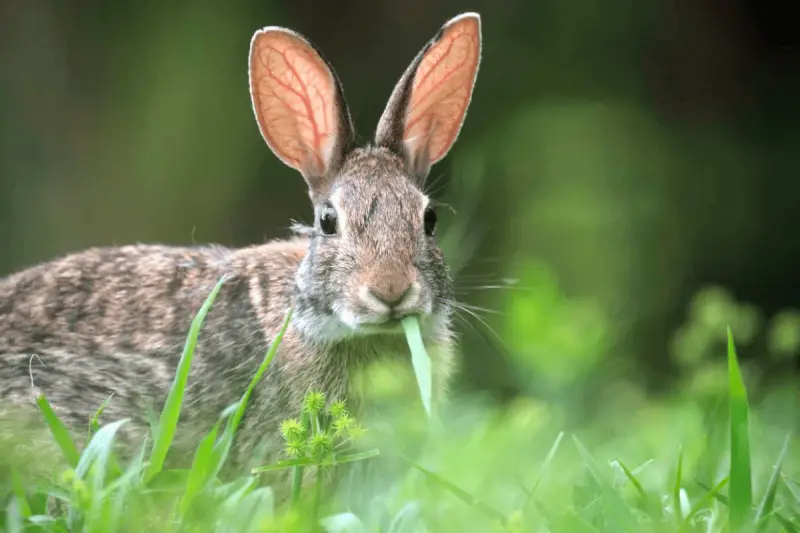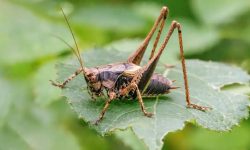Across the world, rabbits are celebrated for their sweetness, intelligence, and calm demeanor. With their twitching noses, long ears, and gentle behavior, they’ve captured the hearts of pet owners and nature lovers alike. But behind that soft and cuddly exterior lies a very specific dietary system that keeps them healthy, active, and strong.
If you’ve ever wondered, “What do rabbits eat?” the answer goes far beyond simple carrots. Rabbits are herbivores with a complex digestive system that thrives on high-fiber, low-sugar foods. Their diet directly affects their lifespan, fur quality, and energy levels. In the wild, rabbits graze constantly, consuming a wide variety of grasses and plants. Pet rabbits, meanwhile, depend on owners to provide a balanced and natural menu that mimics what they’d eat outdoors.
In this detailed guide, we’ll explore 15 foods rabbits love that help them grow strong, covering the essential nutrients, feeding habits, and common mistakes to avoid. Whether you’re caring for a pet rabbit or simply interested in wildlife, understanding their diet is the first step to ensuring their well-being and vitality.
Understanding the Rabbit Diet

Rabbits are strict herbivores, meaning they only eat plant-based foods. Their digestive system is unique—it’s designed for continuous eating of fibrous materials. This constant intake of fiber keeps their gut healthy and prevents life-threatening conditions like gastrointestinal stasis.
Unlike many animals, rabbits cannot vomit or digest heavy starches and fats effectively. Instead, their nutrition comes primarily from hay, fresh vegetables, leafy greens, and a small number of pellets. They also practice cecotrophy, a natural process in which they eat their own nutrient-rich droppings to reabsorb vitamins and minerals.
The ideal rabbit diet is built around balance: unlimited hay, moderate vegetables, and limited fruits or pellets. Now, let’s dive into the 15 foods that make rabbits thrive, providing the perfect mix of nutrition and taste.
15 Foods That Help Rabbits Grow Strong
1. Timothy Hay
Timothy hay is the single most important food for rabbits. It’s rich in fiber, low in calories, and essential for proper digestion. A rabbit’s digestive tract is designed to process large amounts of roughage, and Timothy hay provides exactly that.
This hay also helps wear down a rabbit’s constantly growing teeth. Because their teeth never stop growing, chewing fibrous hay keeps them at a healthy length and prevents dental issues. Make sure your rabbit has unlimited access to fresh, clean hay every day.
2. Orchard Grass
Orchard grass is another excellent hay alternative or supplement. It’s softer and sweeter than Timothy hay, which makes it appealing to picky eaters. Orchard grass contains plenty of fiber and protein to keep rabbits strong and active.
It’s also beneficial for variety—feeding different types of hay prevents boredom and encourages natural grazing behavior. Mixing orchard grass with Timothy hay provides a balanced diet with diverse textures and nutrients.
3. Alfalfa (for Young Rabbits Only)
Alfalfa hay is high in protein and calcium, making it ideal for baby rabbits under six months old. The extra calcium helps support bone growth and muscle development. However, adult rabbits should avoid alfalfa because it’s too rich and can lead to obesity or urinary problems.
Think of alfalfa as a growth booster for young rabbits rather than a long-term food source. Transition them to grass hays like Timothy as they mature.
4. Romaine Lettuce
Not all lettuces are created equal. Romaine lettuce is one of the best leafy greens for rabbits because it’s packed with vitamins A and K, along with hydration. Unlike iceberg lettuce, which contains harmful lactucarium that can upset digestion, romaine is perfectly safe.
Serve washed, fresh romaine leaves daily as part of their vegetable portion. It promotes healthy digestion and keeps your rabbit hydrated, especially in warm weather.
5. Kale
Kale is a nutrient-dense vegetable that offers rabbits essential vitamins like A, C, and K, along with minerals such as calcium and magnesium. It strengthens their immune system and supports bone health.
Because it’s slightly high in calcium, kale should be fed in moderation—about two to three times a week. Pairing it with other low-calcium greens keeps your rabbit’s diet balanced and prevents bladder issues.
6. Carrot Tops
While the image of a rabbit munching on a carrot is iconic, the carrot tops are actually healthier than the orange root. The leafy greens are high in fiber, low in sugar, and rich in nutrients.
Carrots themselves should be an occasional treat due to their sugar content, but the tops can be served daily. They support healthy digestion and mimic the wild greens that rabbits naturally graze on.
7. Parsley
Parsley is one of the most loved greens among rabbits. It’s fragrant, flavorful, and loaded with vitamin C, which boosts immunity and energy levels.
Curly or flat-leaf parsley both work, but feed it in moderation since it’s high in calcium. It’s an excellent choice for variety, especially when mixed with other greens like cilantro or dill.
8. Cilantro
Cilantro is safe, refreshing, and aromatic—a perfect green for rabbits who enjoy flavorful food. It aids in digestion and provides antioxidants that promote overall health.
Cilantro’s light texture makes it easy for rabbits to chew and digest, and its scent can stimulate appetite in picky eaters. Fresh cilantro can be served a few times per week as part of their vegetable mix.
9. Spinach (Occasionally)
Spinach is rich in iron and vitamins, but it should be given sparingly. It contains oxalates that can interfere with calcium absorption if fed too frequently.
Offering spinach once or twice a week adds variety without overloading their system. Combine it with low-oxalate greens like romaine or basil to create a healthy rotation.
10. Dandelion Greens
Dandelion greens are a rabbit’s natural favorite. In the wild, rabbits often graze on them freely. They’re high in fiber, calcium, and vitamin A—perfect for strong bones, shiny fur, and good vision.
They also act as a natural detoxifier, supporting liver function. You can feed both the leaves and flowers, but ensure they’re free from pesticides or lawn chemicals.
11. Basil
Basil adds flavor and nutrition to a rabbit’s diet. It contains antioxidants and anti-inflammatory properties that promote heart health and immune strength.
This fragrant herb can be fed several times per week. Rabbits often enjoy the smell as much as the taste, making it an easy addition to their daily greens.
12. Bell Peppers
Bell peppers are crunchy, colorful, and full of vitamin C. They make an excellent vegetable snack that supports immune function and hydration.
Red, green, and yellow bell peppers are all safe for rabbits. Remove seeds and stems before feeding, and offer small slices a few times a week. The crisp texture also helps keep teeth strong.
13. Broccoli Leaves and Stems
Broccoli leaves and stems (not the florets) are a safe and nutritious choice. They’re high in fiber and vitamin K, which strengthens bones and supports healthy blood function.
Feed in small amounts to avoid gas buildup—too much broccoli can cause bloating. Combined with hay and other greens, it offers a balanced mix of nutrients.
14. Cucumber
Cucumber is a hydrating vegetable perfect for hot days. It contains lots of water, some fiber, and trace minerals. It’s light, refreshing, and helps prevent dehydration.
Because it’s low in nutrients, cucumber should complement, not replace, other greens. Serve thin slices a few times per week as a cooling snack.
15. Apple (as a Treat)
Apples are a sweet treat rabbits adore. They’re rich in fiber and vitamins, but their sugar content means moderation is key. Offer only small slices without seeds, which are toxic to rabbits.
Apples are great for bonding and training moments. Their natural sweetness keeps rabbits interested and motivated while providing a healthy dose of vitamin C and antioxidants.
Foods to Avoid
Not everything green is safe for rabbits. Certain foods can cause serious health issues, even in small amounts. Avoid feeding:
- Iceberg lettuce (contains harmful lactucarium)
- Avocado (toxic fat content)
- Potatoes or sweet potatoes (starchy and hard to digest)
- Onions, garlic, or chives (toxic compounds)
- Processed foods or grains (cause digestive blockages)
Rabbits have delicate digestive systems—stick to natural, high-fiber foods and avoid anything sugary, fatty, or heavily processed.
Hydration and Water Needs
Fresh water is as vital as food for rabbits. They drink frequently, especially when eating dry hay. Always provide clean water in a sturdy bowl or bottle. Avoid flavored or vitamin-enriched waters, as these can upset their stomachs.
Hydration supports digestion, regulates body temperature, and prevents urinary tract issues. Adding hydrating vegetables like cucumber or romaine also helps maintain fluid balance.
Feeding Schedule and Portion Control
Rabbits thrive on consistency. Feed them at the same time daily, ensuring they always have access to hay. Vegetables can be given twice a day, while pellets should be limited to ¼ cup per 2–3 pounds of body weight.
Fruits and treats should make up less than 10% of the total diet. Overfeeding sugary or rich foods can cause obesity, dental problems, and digestive disorders.
How a Balanced Diet Helps Rabbits Grow Strong
A proper diet strengthens more than just a rabbit’s body—it boosts every aspect of its health.
- Strong Teeth: Hay and fibrous greens naturally file down continuously growing teeth.
- Healthy Digestion: Fiber keeps the gut moving and prevents blockages.
- Glossy Fur: Vitamins from leafy greens promote soft, shiny coats.
- Strong Bones and Muscles: Calcium, magnesium, and protein support bone density and agility.
- Boosted Immunity: Antioxidants from herbs and vegetables help fight disease naturally.
A balanced diet helps rabbits live longer, happier lives—often exceeding 10 years with proper care.
FAQs About Rabbit Diets
What do rabbits eat every day?
Rabbits should eat unlimited hay daily, a mix of leafy greens, and a small portion of pellets. Fresh water must always be available.
Can rabbits eat carrots daily?
No. Carrots are high in sugar and should be given only occasionally as a treat, not as a staple food.
What vegetables are best for rabbits?
Romaine lettuce, kale, parsley, and dandelion greens are excellent choices for daily feeding.
How often should I feed fruit?
Fruits should be limited to a few small slices two or three times per week due to their sugar content.
Do rabbits need pellets?
Yes, but in small amounts. Pellets provide concentrated nutrients but should never replace hay and fresh vegetables.
Can rabbits eat grass from the yard?
Yes, but only if it’s pesticide-free and chemical-free. Avoid freshly cut or wet grass clippings that may ferment quickly.
Conclusion
Rabbits are gentle herbivores that thrive on a diet rich in hay, fresh greens, and occasional treats. What they eat directly shapes their health, strength, and happiness. By providing the right foods—like Timothy hay, romaine lettuce, dandelion greens, and small fruit portions—you’re ensuring they grow strong, stay active, and live long, fulfilling lives.
Understanding a rabbit’s natural diet helps us respect their biology. These animals are designed to graze, nibble, and explore their food constantly. A proper diet supports not just their bodies but also their instincts.
So the next time you watch your rabbit happily munching on hay or crunching a leaf, remember: every bite contributes to their vitality, longevity, and joy. Feeding them right means giving them the life nature intended—full of energy, comfort, and strength.






